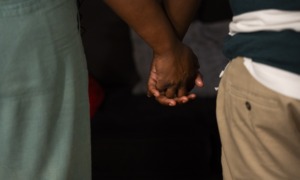JJ Today is back home in Washington, D.C., fresh off a trip to the Juvenile Detention Alternatives Conference in Kansas City (click here for coverage of day one and here for coverage of day two). With Congress in recess until after the November elections, there is, of course, no news on the Juvenile Justice and Delinquency Prevention Act reauthorization.
There is still a slim chance that reauthorization could get to the floor of both houses in this Congress; most believe that Rep. George Miller (D-Calif.) has the juice, if he wants to, to introduce a House version of the Senate bill and ram it through committee pretty quickly. But nothing about Miller’s actions suggests that the bill is a priority, which is why some advocates for the reauthorization are already starting to shift their focus to 2011.
We covered much news from the conference, but here are a few notes from around the country:
***The Delaware Girls Institute has released “You Can’t Just Paint It Pink,” a video and training manual aimed at JJ system leadership that makes the case for specialized programs that suit female offenders. We have not seen the video or manual yet, but wanted to get the word out that it was available. You can contact the institute here.
***We follow the JJ headlines around the country pretty regularly here at JJ Today, and cannot recall a state ever having a worse week in juvenile news than the State of Maryland just had. To wit:
-A report from the state’s Juvenile Justice Monitoring Unit identifying the many ways in which the Department of Juvenile Services needs to improve security at Cheltenham, the facility where a teacher was killed in February (a 14-year-old committed to the facility has been charged with first-degree murder and rape in the teacher’s death).
Bottom line, the place was so understaffed that protocol on the presence of supervisors was thrown out the window. Teachers at Cheltenham knew they could not do their jobs well if they waited for supervisors to become available in every situation, so working with juveniles without the presence of other staff became a regular occurrence.
The most telling comment in the report is probably this from a teacher at Cheltenham: “We knew it was a risk, and anyone who says they did not know isn’t being truthful. But we all broke the rules. It was the only way to get our jobs done. There wasn’t enough staff to do anything else.”
-An audit by the State Department of Legislative Services ripped DJS for slow and sloppy paperwork that might have cost the state millions, and for inconsistent treatment and case management practices.
-A report from an organization called Just Kids Partnership looked at 135 juveniles who were transferred to adult court, and found that 90 percent of them were not sentenced to tim in adult prisons. One third of the cases resulted in dismissed charges, one-third were kicked back to juvenile court by a judge, and 20 percent of the juveniles were convicted but sentenced to the time they served waiting for trial. Which means that most youth wait about five months in adult jail to have their case dismissed, sent back to juvenile, or end with time served.
-The editorial board of the city’s largest newspaper, the Baltimore Sun, published a scathing editorial on DJS that took to task both current gubernatorial candidates [incumbent Martin O’Malley (D) and former Gov. Robert Ehrlich (R)] for not discussing the state’s problems with juvenile justice.
From the editorial: “Former Gov. Robert L. Ehrlich,Jr. came into office almost eight years ago promising to fix the department, which had been troubled for years. He didn’t. Gov. Martin O’Malley came into office nearly four years ago promising that new, experienced management would solve the DJS’ problems. It didn’t. Perhaps that’s why neither one of them is talking much about juvenile justice in this election.”
***We mentioned earlier this week that a number of Florida counties were suing the state over billing practices and costs associated with use of the state detention centers. Dale White, a reporter for Sarasota newspaper the Herald Tribune, reports that at least two counties are considering another option: taking over control of the state center closest to them.
Sarasota and Manatee counties both figure that jointly funding the center themselves would be cheaper than paying the state to do it, and White reports that such a shift could free the counties up to fund more alternatives to detention and diversion programs.
***Former Florida juvenile judge Irene Sullivan has published an account of her experience in the system. Raised by the Courts comes out early next month, and from the jacket it looks like it will combine stories from her own experiences with recommendations on better policies for JJ systems. Sullivan was heavily involved in developing truancy and drug courts in Pinellas County.





























